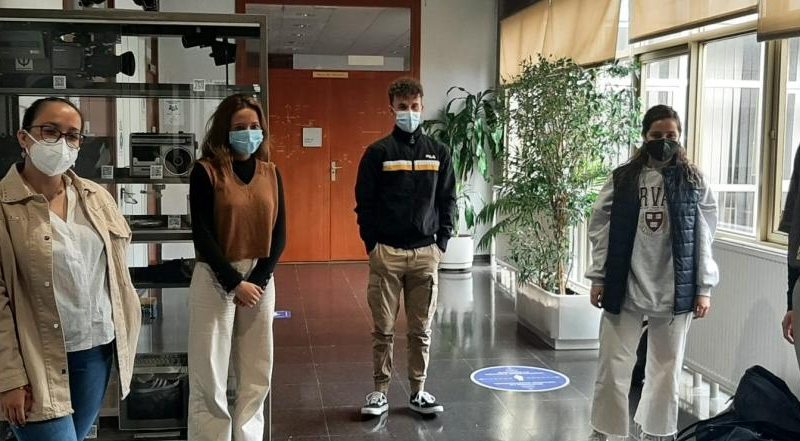Young people of Generation Z prioritize social networks over traditional media as a source of information and are extremely concerned about the political and social polarization that is being generated in them.
In addition, they have a very pessimistic vision of the future, they believe that hoaxes and polarization will continue to spread, unleashing more social tension. These are just some of the conclusions drawn from the group dynamics organized by the communication consultancy Torres y Carrera through its creative workshop La Línea Maginot and the Faculty of Information Sciences of the Complutense University of Madrid within the framework of the Culebras Project.
The dynamics in which three groups of young people aged between 18 and 24 participated were aimed at analyzing the proliferation of fake news and social tension, and their relationship with social networks. Precisely, the theme of ideological division was the most repeated among the participants who consider that fake news exploits this polarization and makes it even deeper.
The group dynamics arose as a result of a demographic study on hoaxes carried out last March. In this survey it was observed that 82.45% of young people (16-24 years old) inform themselves mainly through social networks, that 36.4% are not concerned that information is false and that 48.7% They are not interested in what happens in the world.
Laura Torres, principal investigator of the Maginot Line, highlights: “although young people acknowledge using social networks as the main source of information, they are not fully reflected by the survey because they do believe that they are concerned about the social problems that surround them and for not contributing to the dissemination of hoaxes.
This contrast has allowed us to investigate the attitude of young people and to know first-hand what topics arouse their interest, which is a very interesting continuation for the Culebras Project “.
For his part, Cristóbal Fernández, professor and Vice-Dean of Communication and Institutional Relations of the Faculty of Information Sciences and spokesman for the UCM in the Culebras Project, points out: “despite believing that hoaxes will continue to spread over time, the participants in these working groups showed great confidence in the role of education and the training of citizens with a critical spirit as a key tool to stop the phenomenon of fake news “.
These results have been presented at a press conference by the Maginot Line (Torres y Carrera) and the Faculty of Information Sciences of the Complutense University.
Complementary profiles
A total of 19 young people between 18 and 24 years old participated in the elaboration of three group dynamics with an approximate duration of two hours. The first of them brought together five students from the Journalism degree; the second, to seven students from other grades not related to communication; and the third and last was carried out with seven students who are completing a middle grade.
The meetings took place on April 15, April 29 and May 13 and the sessions were held at the facilities of the Complutense University of Madrid and those of the Tomillo Foundation. Group dynamics are a research method that allows us to analyze the forces that affect behavior, as well as the behaviors, motivations, needs, problems, values, desires and attitudes that the subjects of said group have with respect to a given topic.
In this case, the meetings made possible an approach to the reality of generation Z in relation to fake news: what are their concerns about hoaxes, what do they think may be the reasons why they proliferate on social networks, how are they They face fake news and what possible solutions they see.
Culebras Project
The investigation into false news undertaken by the Complutense University of Madrid and the communication consultancy Torres y Carrera began in May 2020. In that first phase, the useful life of the so-called Fake News was studied through the creation, dynamization and analysis of four hoaxes released to the networks in August and finalized -officially- four weeks later.
The second phase of the Culebras Project combines a demographic study carried out in March 2021 at the national level on a sample of 1,500 respondents online with the detailed analysis of the members of the so-called Generation Z that in the survey appeared with a very bias. specific with respect to the rest of the age segments.









